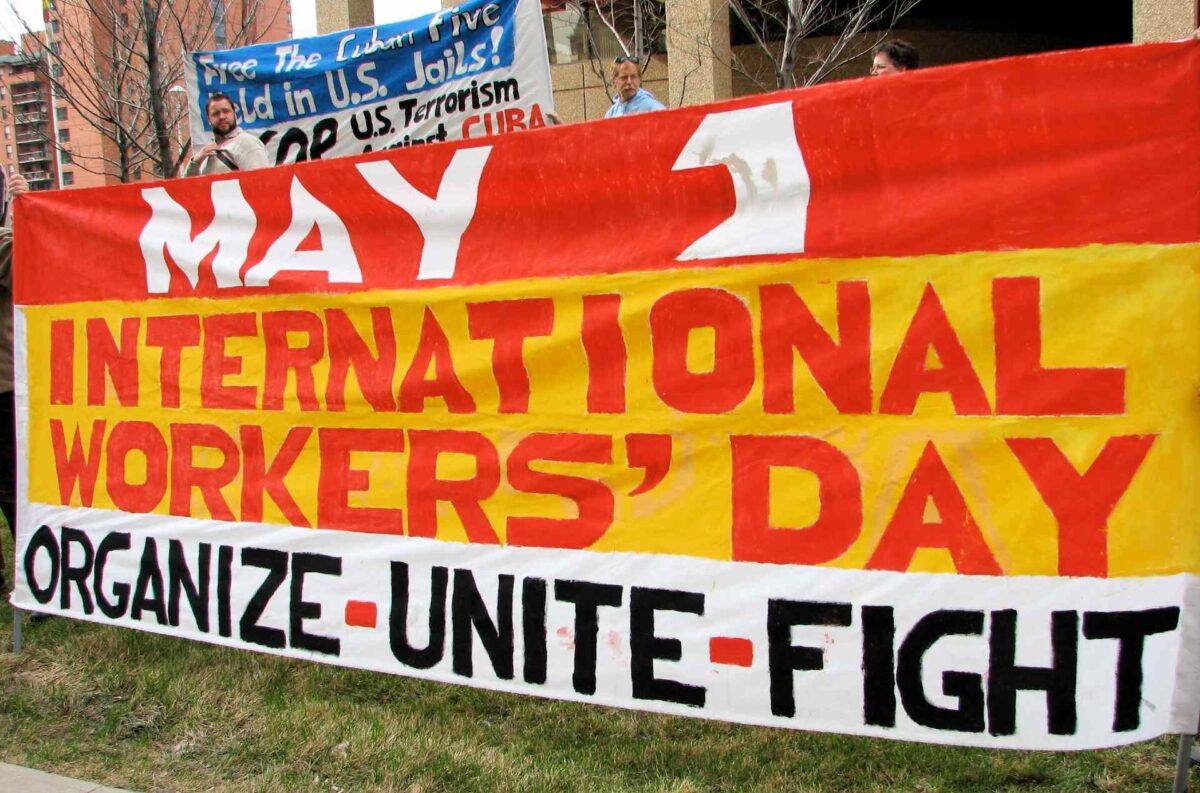International Workers’ Day commemorates the mobilizations of workers and their fight for their rights. Across the world, the day is recognized as a celebration of how far labourers have come—in the past, workers have fought for the eight-hour working day and better working conditions.
Some of the ongoing campaigns in Canada include the call for federal anti-scab legislation and union Status for All.
Anti-scab legislation needed for fair bargaining
Currently in Canada, only British Columbia and Quebec have provincial anti-scab legislation, while it has been introduced in the House of Commons at the federal level it has yet to be passed. The use of scab workers has disrupted workforces, leading to long delays in reaching an agreement, subverting fair collective bargaining and workers’ right to strike.
According to Unifor, their longest running labour disputes all involved the employer using scab workers. On average, these labour disputes involving scab workers lasted six times longer than those without.
After decades of calling on the federal government to pass anti-scab legislation and protect workers across the country, there has been progress. Earlier this year, labour unions celebrated as the anti-scab legislation, Bill C-58, was advanced in parliament.
On March 21, Unifor national president Lana Payne addressed members of parliament to push for a national anti-scab legislation.
“Our union bargains a collective agreement practically every day in Canada, as do many other unions. The majority of those negotiations are concluded without a dispute,” said Payne in her statement to parliament.
“But still there are employers who refuse to respect the rights of workers in Canada who behave as if workers do not have Constitutional rights, and this is what brings me to the important need for C-58 to be adopted as law,” Payne added.
In support of this piece of legislation, Unifor is joined by many other labour organizations and unions including the Canadian Labour Congress, Public Service Alliance of Canada and Canadian Union Public Employees. They all agree that there is still work to be done.
“[Bill C-58] modernizes Canada’s labour relations system to reflect the current social and economic context of this country, where increased corporate power and wealth requires an effective counter-balance,” said Payne. “C-58 must pass and be implemented without delay.”
Status for All, the fight for regularization
Canada’s immigration policy has failed migrant workers for years. With temporary authorization permits expiring and the federal government refusing to renew or grant permanent residency, it leaves immigrants with an undocumented status. Their choices are limited—either they stay in Canada or return to a country where their safety is at risk.
But as an undocumented immigrant, they face exploitation at work, fear of deportation, experience insecure housing and poverty, and have no access to healthcare. Migrants Rights Network estimated that there are about 500,000 undocumented immigrants.
“We’re already living here. We’re already paying here. We just want access to all those rights that Canadians have. We’re here and we are not asking for any privileges—we’re actually just asking for basic human rights,” said Migrant Workers Alliance for Change (secretariat for the Migrant Rights Network) organizer, Luisa Ortiz-Garza, in an interview with rabble.ca.
Back in 2021, the mandate letter to former Minister of Immigration, Refugees and Citizenship, Sean Fraser, outlined various objectives to address migrant workers. One of the points addressed was regularization in Canada.
Over two years ago, this was promised yet change has been slow. Migrants Rights Network, submitted a proposal for regularization and announcements on a comprehensive program is set to be released this spring by the current Minister of Immigrations, Refugees and Citizenship, Mark Miller.
Coming up to the deadline, the Migrant Spring campaign was launched in March to pressure the federal government to act. But Ortiz-Garza said that they are still waiting. She is calling on more organizations and individuals for more support.
“Undocumented people are living in fear, but they’re also coming out and speaking up … not only for themselves, but for others undocumented people that are still in that stage of fear. They’re representing those people because they know the importance of having equal rights in Canada,” said Ortiz-Garza.
“Even though they can lose their jobs, they can be homeless, they can be banned from the program if they speak up because employers have so much power and the system has been created to protect employers, not to protect workers. But workers are fighting back,” they added.
Although each of these labour efforts vary, there’s one thing that remains constant—whether it’s anti-scab legislation or permanent residency for undocumented workers, a united front is required for mobilization and change.



